Thor: Walrus sighting at Calshot beach extremely rare, expert says
- Published
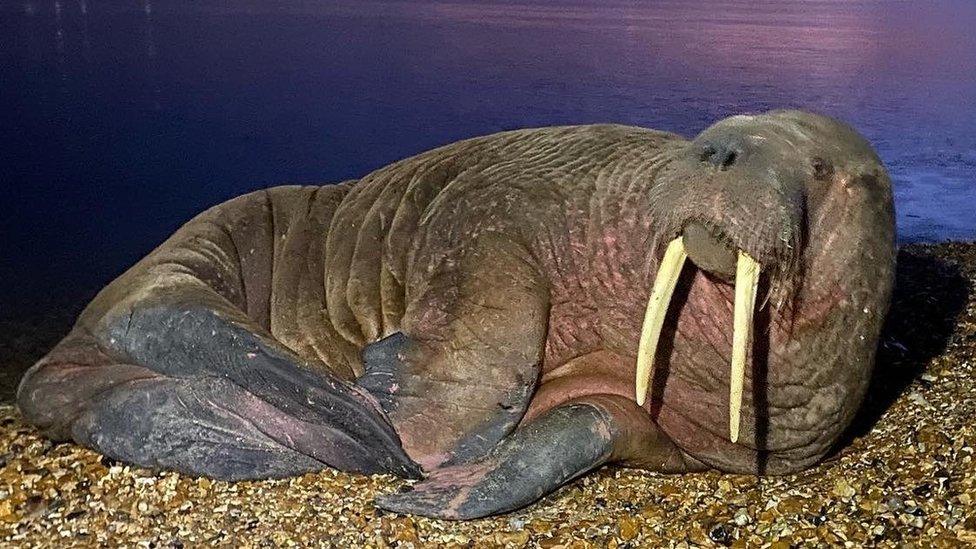
At home in Hampshire, Thor the walrus rested at Calshot beach for several hours
A walrus found resting on a beach on the south coast of England was an "extremely rare" sight for the UK, a wildlife expert has said.
Nicknamed Thor, the hefty mammal was spotted on Calshot beach in Hampshire on Sunday, before swimming off.
The male is known to have visited the Netherlands and Dieppe in France in recent months.
World Wide Fund for Nature's (WWF) Rod Downie said he was likely to make his way back to Arctic waters.
A cordon was put in place to prevent the walrus from being disturbed after he was spotted by fishermen in the early hours of Sunday.
Mr Downie, WWF's chief polar adviser, said the discovery was "extremely rare but not unprecedented".
He added Thor was likely to be an Atlantic walrus and was probably an adolescent "vagrant" swimming south alone, and could have travelled from as far as the Canadian Arctic.
As long as he is able to feed on his usual diet of clams and mussels off the seabed, Mr Downie said there was "no reason" why Thor could not survive in British waters, although would eventually want to return to colder waters.
While other walruses have been spotted in UK waters in recent years, he said it would be "difficult" to attribute any pattern to long-term climate change.
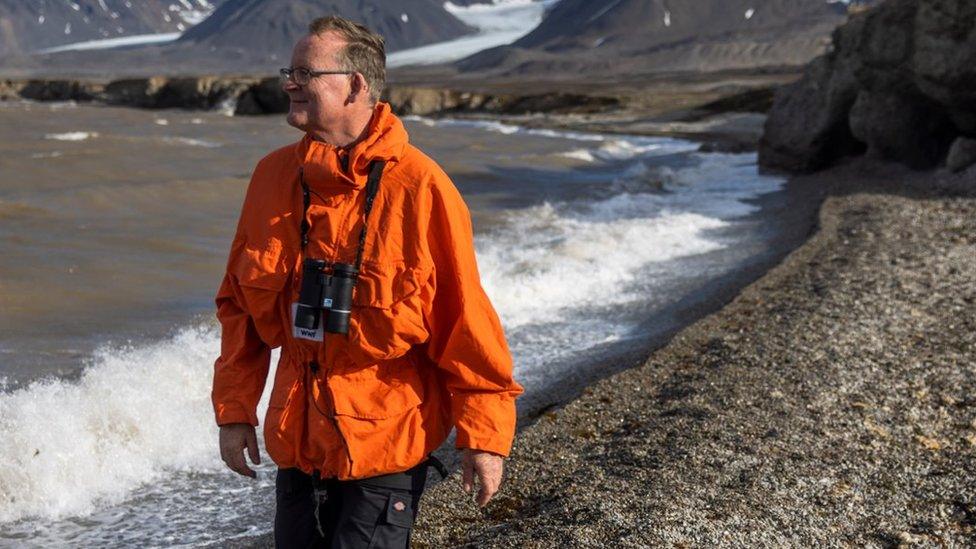
Rod Downie has studied the effects of climate change on Arctic species
"The Arctic is witnessing the effects of climate change more rapidly that anywhere," he said.
"Walruses are living on the front line of climate change and face massive threats as sea ice diminishes.
"Walruses like colder waters, so it would be counter-intuitive to see more of them here - as Arctic waters warm, they would instinctively go further north to colder waters.
"The really important thing is that although it's an amazing thing to see - leave it alone so it can rest before feeding, and not expend more energy."
He said he hoped the interest in the Arctic visitor would encourage more people to take part in the WWF's Walrus from Space, external citizen science project to count walruses from satellite images, to monitor the impact of climate change on their population numbers.
Fully grown Atlantic walruses, external can weigh up to 908 kg (2,000 lb) and reach lengths of up to 2.4 m (8 ft).

Follow BBC South on Facebook, external, Twitter, external, or Instagram, external. Send your story ideas to south.newsonline@bbc.co.uk, external.
Related topics
- Published11 December 2022
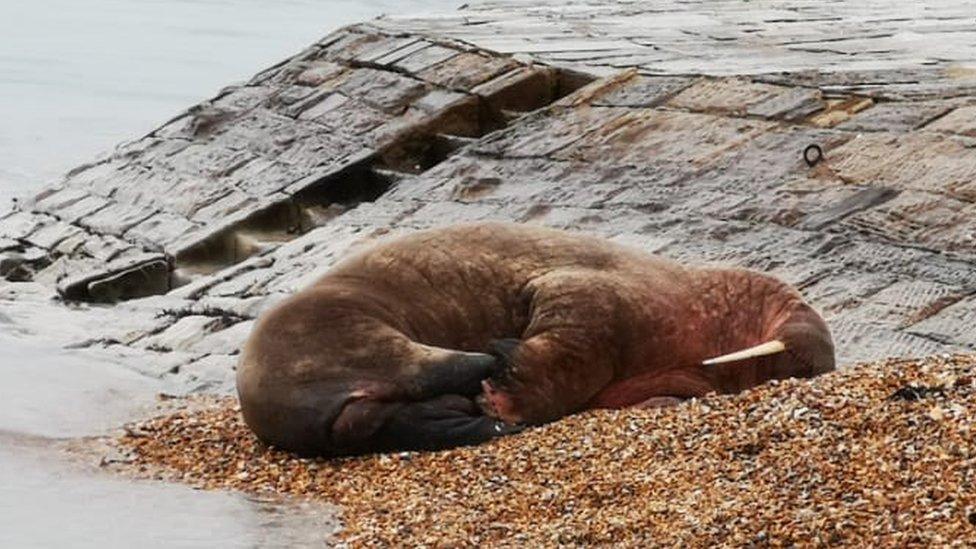
- Published19 August 2022
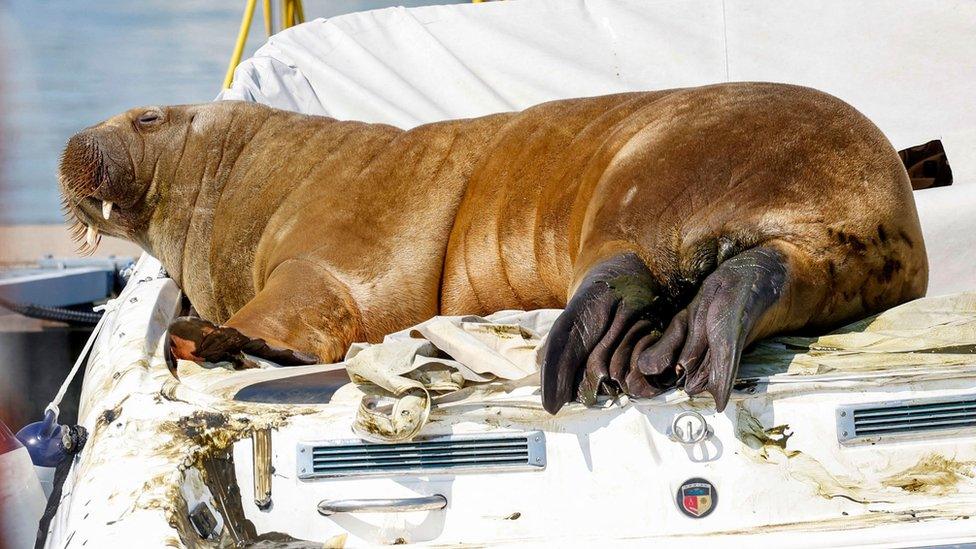
- Published26 July 2022
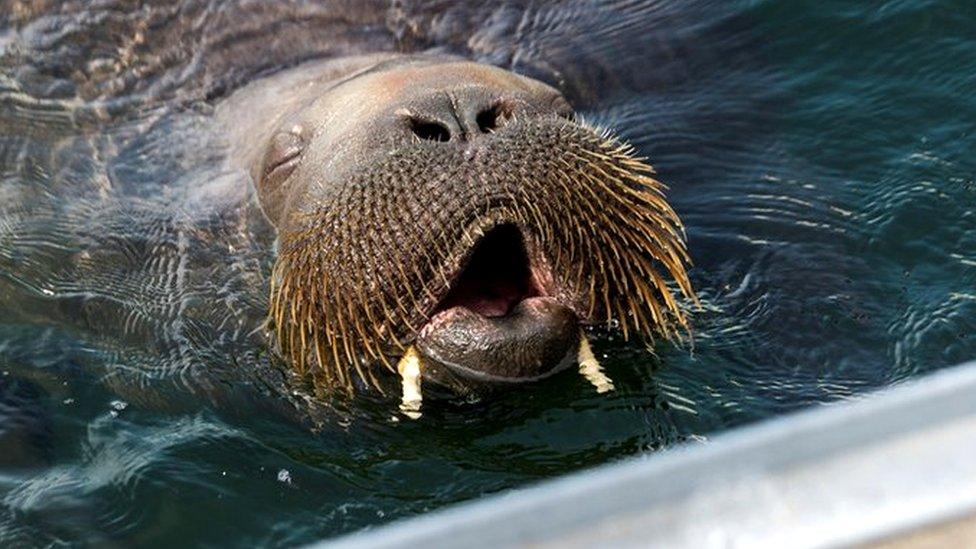
- Published20 September 2021